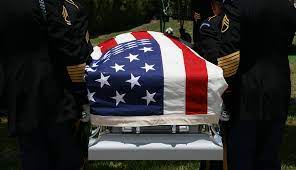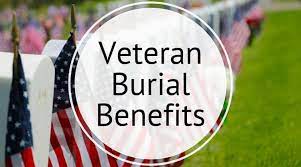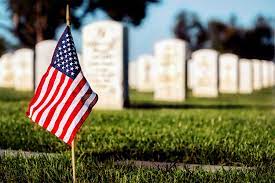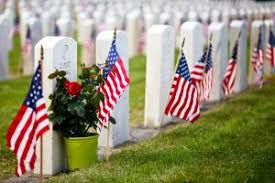Honoring the Sacrifice: A Guide to Veteran Funerals
When a brave soldier passes away, it is our duty as a grateful nation to ensure they receive a dignified farewell. A veteran funeral is a solemn and respectful ceremony that pays tribute to their service and sacrifice. In this article, we will explore the significance of veteran funerals and the traditions that accompany them.
First and foremost, it is important to understand that a veteran funeral is not just an ordinary funeral service. It involves specific customs and honors that are bestowed upon those who have served in our armed forces. These ceremonies not only provide comfort to grieving families but also serve as a reminder of the individual’s dedication to their country.
One of the most recognizable symbols of a veteran funeral is the flag-draped casket. This powerful symbol represents the gratitude and respect our nation has for its fallen heroes. The American flag is carefully folded by military personnel, with each fold holding its own symbolic meaning. This flag is then presented to the family as an expression of appreciation for their loved one’s service.
Another important aspect of a veteran funeral is the presence of military honors. These honors may include a rifle salute, performed by a firing party, which consists of three volleys fired simultaneously as a sign of respect. Additionally, buglers or trumpeters may play “Taps,” a hauntingly beautiful melody that signals both day’s end and final farewell.
The involvement of uniformed military personnel at veteran funerals adds an air of reverence and solemnity. Honor guards may be present to perform ceremonial duties such as carrying the casket or standing vigil over it during visitation hours. Their presence serves as a reminder that the deceased was part of something greater than themselves – they were part of our nation’s defense.
In addition to these ceremonial elements, there are also certain benefits available for veterans’ funerals. The Department of Veterans Affairs provides financial assistance for eligible veterans, which can help alleviate some of the financial burden on grieving families. This assistance may cover expenses such as burial plots, grave markers, and even transportation costs.
It is important to note that veteran funerals can vary depending on the individual’s branch of service, rank, and personal preferences. Some veterans may choose to have a religious or cultural ceremony incorporated into their service. Others may opt for a more intimate gathering with close family and friends. Regardless of the specific arrangements, the underlying purpose remains the same – to honor and remember a life dedicated to serving our country.
In conclusion, veteran funerals are a poignant way to pay tribute to those who have bravely served in our armed forces. These ceremonies incorporate meaningful traditions and honors that reflect the immense gratitude we feel as a nation. By providing support and resources for grieving families, we ensure that our veterans receive the respect and recognition they deserve even in their final journey.
Frequently Asked Questions About Veteran Funerals in the United States
- How do you honor a Veteran at a funeral?
- What happens at a veterans funeral?
- What does the VA pay for when a Veteran dies?
- Do all veterans get a military funeral?
How do you honor a Veteran at a funeral?
Honoring a veteran at a funeral is a meaningful way to pay tribute to their service and sacrifice. Here are some ways to honor a veteran during their funeral:
- Display the American flag: The American flag holds great significance in honoring veterans. Ensure that the casket or urn is draped with an American flag, symbolizing the nation’s gratitude for their service. The flag should be handled with respect and care throughout the ceremony.
- Military honors: Contact the appropriate military branch or Veterans Affairs office to arrange for military honors at the funeral. These honors may include a rifle salute, where a firing party fires three volleys simultaneously, as well as the playing of “Taps” by a bugler or trumpeter.
- Honor guard: Request an honor guard detail to be present at the funeral. An honor guard typically consists of uniformed military personnel who perform ceremonial duties such as carrying the casket, standing vigil over it during visitation hours, and folding and presenting the American flag to the family.
- Veteran organizations: Reach out to local veteran organizations such as Veterans of Foreign Wars (VFW) or American Legion for their involvement in the funeral service. They may provide additional support, conduct rituals, or offer assistance in organizing specific ceremonies associated with their organization.
- Military emblems and symbols: Incorporate military emblems or symbols into the funeral service. This could include displaying branch-specific insignia, medals earned by the veteran, or other personal memorabilia that represents their time in service.
- Personalize eulogy and speeches: During eulogies or speeches, highlight the veteran’s military service and accomplishments while also sharing personal stories that reflect their character and dedication to serving our country.
- Participation of fellow veterans: Encourage fellow veterans who knew the deceased to participate in the funeral ceremony by giving readings, sharing memories, or offering tributes that commemorate their shared experiences.
- Support from the community: Reach out to local community organizations, schools, or veteran support groups to attend the funeral service and show their support. Their presence can provide comfort to the grieving family and demonstrate the broader appreciation for the veteran’s service.
- Military funeral honors funding: Explore available financial assistance programs through the Department of Veterans Affairs to help cover funeral expenses for eligible veterans. These programs may include burial plots, grave markers, transportation costs, and other related expenses.
Remember, each veteran’s funeral is unique, and it is essential to consult with the family and loved ones to understand their wishes and preferences. By honoring a veteran at their funeral, we express our gratitude for their selfless service and ensure that their memory lives on in a dignified manner.
What happens at a veterans funeral?
At a veteran’s funeral, several significant events and traditions take place to honor the deceased individual’s military service. Here are some key elements typically observed during a veteran’s funeral:
- Flag-draped casket: The casket is covered with the American flag as a symbol of the nation’s appreciation for the veteran’s service. The flag is carefully folded and presented to the family.
- Military honors: Military honors are performed to pay tribute to the veteran. This may include a rifle salute, where a firing party fires three volleys simultaneously, representing honor and respect. Taps, a bugle or trumpet call, may also be played.
- Honor guard: An honor guard consisting of uniformed military personnel may be present at the funeral. They may perform ceremonial duties such as carrying the casket or standing vigil over it during visitation hours.
- Funeral procession: A formal procession often takes place, led by a hearse carrying the flag-draped casket. The procession may include military vehicles and escort vehicles bearing flags.
- Military chaplain or clergy: A military chaplain or clergy member may conduct religious or spiritual services based on the family’s preferences and beliefs.
- Final resting place: The veteran is laid to rest in a cemetery, often in a designated area for veterans such as a national cemetery or veterans’ section of a cemetery.
- Committal service: A committal service occurs at the gravesite, where final words are spoken, prayers are offered, and sometimes additional military honors are rendered.
It is important to note that specific customs and traditions can vary depending on factors such as branch of service, rank, personal preferences of the deceased or their family members, and local customs.
The Department of Veterans Affairs provides resources and benefits to support eligible veterans’ funerals, including financial assistance for burial expenses and access to national cemeteries for interment.
Overall, a veteran’s funeral is a solemn and respectful occasion that serves to honor and recognize the individual’s military service, ensuring they receive a dignified farewell for their sacrifice to our nation.
What does the VA pay for when a Veteran dies?
When a veteran passes away, the Department of Veterans Affairs (VA) provides certain benefits and financial assistance to support the funeral and burial arrangements. Here are some of the key benefits that the VA may cover:
- Burial Allowance: The VA offers a burial allowance to help offset funeral expenses. This allowance is paid directly to the funeral home or cemetery, and it can cover costs such as casket or urn, transportation, embalming, and other related services.
- Plot Allowance: If the veteran is buried in a non-VA cemetery, the VA may provide a plot allowance to partially reimburse the cost of the burial plot.
- Headstone or Marker: The VA provides headstones or markers for eligible veterans at no cost. These can be placed in national cemeteries or private cemeteries where veterans are laid to rest.
- Presidential Memorial Certificate: The VA issues a Presidential Memorial Certificate as a tribute to honor the veteran’s service. This certificate bears the President’s signature and expresses gratitude for their dedication.
- Honor Guard: Upon request, an honor guard may be provided by the VA to perform military funeral honors such as folding and presenting the American flag, playing “Taps,” and conducting a rifle salute.
It is important to note that these benefits are subject to certain eligibility criteria established by the VA. Generally, veterans who were discharged under conditions other than dishonorable are eligible for these benefits. Additionally, some surviving family members may also qualify for certain benefits if they meet specific requirements.
To access these benefits, it is recommended that families contact their local VA office or call the national VA Benefits Information line at 1-800-827-1000 as soon as possible after their loved one’s passing. The VA staff will guide them through the application process and provide further assistance based on their individual circumstances.
Remember that each situation is unique, so it’s advisable to consult with the VA directly to understand the specific benefits and support available in a particular case.
Do all veterans get a military funeral?
While it is a common misconception, not all veterans are entitled to a full military funeral. The eligibility for military funeral honors and benefits depends on various factors such as the veteran’s service record, discharge status, and specific criteria set by the Department of Defense and the Department of Veterans Affairs.
In general, to be eligible for a military funeral, a veteran must have received an honorable discharge from their military service. This means that individuals who were discharged under dishonorable or other undesirable conditions may not qualify for certain honors and benefits.
However, even if a veteran does not meet the criteria for a full military funeral, they may still be eligible for some level of recognition. The Department of Veterans Affairs provides certain benefits such as a government-furnished headstone or marker, burial in a national cemetery (subject to available space), and the folding and presentation of the American flag to the next of kin.
It is important to note that each branch of service has its own guidelines regarding funeral honors. These guidelines outline which veterans are eligible for specific ceremonial elements such as rifle salutes, buglers playing “Taps,” or honor guards performing duties at the funeral.
Family members or loved ones of deceased veterans can contact their local Veterans Service Organization or Funeral Director to inquire about available honors and benefits based on the individual’s service record.
In summary, while not all veterans are entitled to a full military funeral, there are still options for honoring their service and providing recognition. The eligibility for specific honors and benefits depends on various factors including discharge status and service record. It is recommended that families consult with relevant authorities to determine what honors may be available for their loved ones who served in the military.




